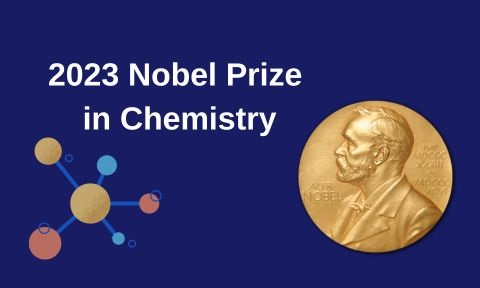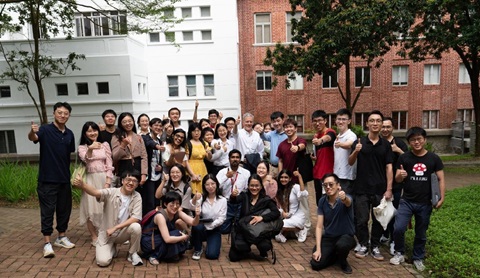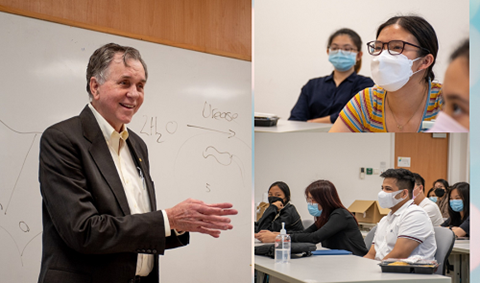Nobel Prize laureate Prof Brian Kobilka’s Tea Session with NTU Scholars and PhD Students
Jointly organised by IAS NTU and the CN Yang Scholars Programme | 19 January 2023, CCEB Conference Room
Imagine discovering the exact structure of a type of receptor that is important to the point it is targeted by more than one-third of all approved drugs used today. This is exactly what Nobel Prize Laureate Prof Brian Kobilka led Mankind to achieve. With his research on G Protein-Coupled Receptors (GPCR) being used widely in current drug discovery applications, diseases can be better treated leading to millions of lives saved annually, and having the opportunity to meet him was such an honour.
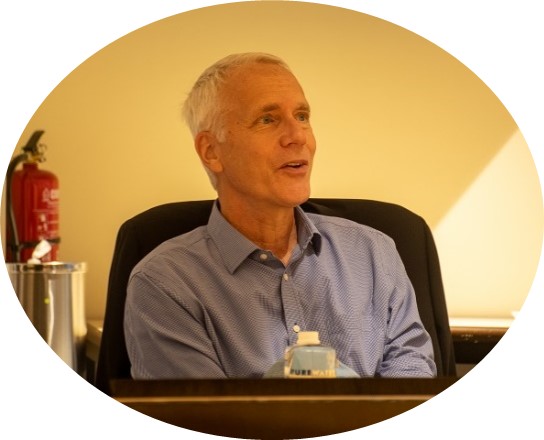
Prof Kobilka was born in a small town in Minnesota with a population of 7,500. Since young, he aspired to be a doctor because in his town they were well-respected individuals. He pursued Biology and Chemistry at the University of Minnesota Duluth to prepare for medical school which was where he met his wife, Dr Tong Sun Kobilka. Following that, he earned his Doctor of Medicine at Yale University, completed his fellowship at Duke University and later joined the then newly opened Department of Molecular and Cellular Physiology at Stanford University.
Prof Kobilka talked about when and what got him interested in intensive care medicine. During his clinical training, he observed that most of the medicines used were targeted at GPCRs, which can regulate hormones and neurotransmitters; and with that it kickstarted his interest in this system leading him to delve more in-depth into research on GPCRs.
He recounted the challenges faced during his research such as funding constraints and doubts about his research in the early days. However, such discourse garnered attention for his research and in turn resolved the problem of funding constraints, turning the initial obstacle into an opportunity.
When asked by a scholar how the research environment differs between the United States and the rest of the world, Prof Kobilka replied that he noticed the drastic differences with regard to funding and research freedom given to scientists. In the United States, scientists are given somewhere in the millions and are sometimes able to conduct their own research whereas in other regions, funding is either limited or young scientists would have to seek apprenticeship from someone more senior in that field of research.
Another PhD student sought Prof Kobilka’s advice on what to do when one receives data that fails to align with one’s hypothesis; to which he advised listeners not to be afraid of “different data”, especially if they are reproducible as they can lead to surprising research outcomes or help in unexpected ways.
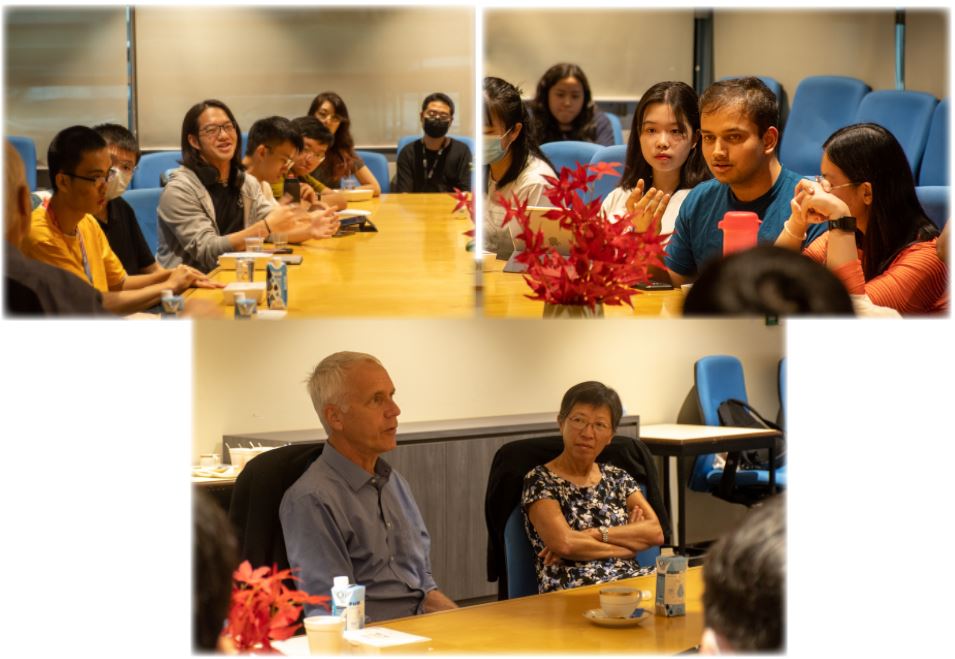
Enthusiastic students engaging in discussion with Prof Brian Kobilka.
Prof Kobilka recalled how grateful he was to other scientists, experts in their fields, who have helped him overcome challenges. He also mentioned how grateful he was to a competitor of his at Cambridge who provided him with a then-recently invented micron beam which contributed to his breakthrough discovery with the diffraction pattern of his protein crystals.
When asked by a PhD student what traits he looks for in scientists who want to work for his laboratory, he replied that he desires scientists who are independent, able to be a team-player and are highly motivated, skilled, and talented.
Prof Kobilka also mentioned about the ConfometRx Research Foundation, a non-profit foundation co-founded with his wife, which aids large pharmaceutical companies with drug discovery.
Towards the end, a student asked him what had changed after receiving the Nobel Prize. Prof Kobilka shared that previously he was able to be more involved in the laboratory, but his current schedule mostly consists of having to attend seminars all around the world (which he emphasises that he also greatly enjoys and appreciates) and having to write recommendation letters to scientists who seek accreditation or advice with regard to their research.
With the groundbreaking discovery Prof Kobilka has made, drug discovery has never been faster and more affordable.
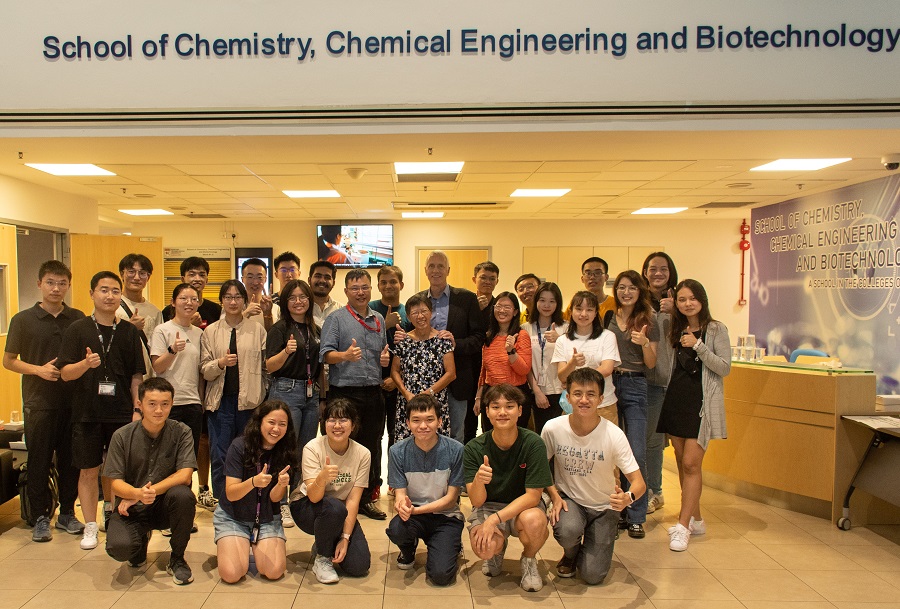
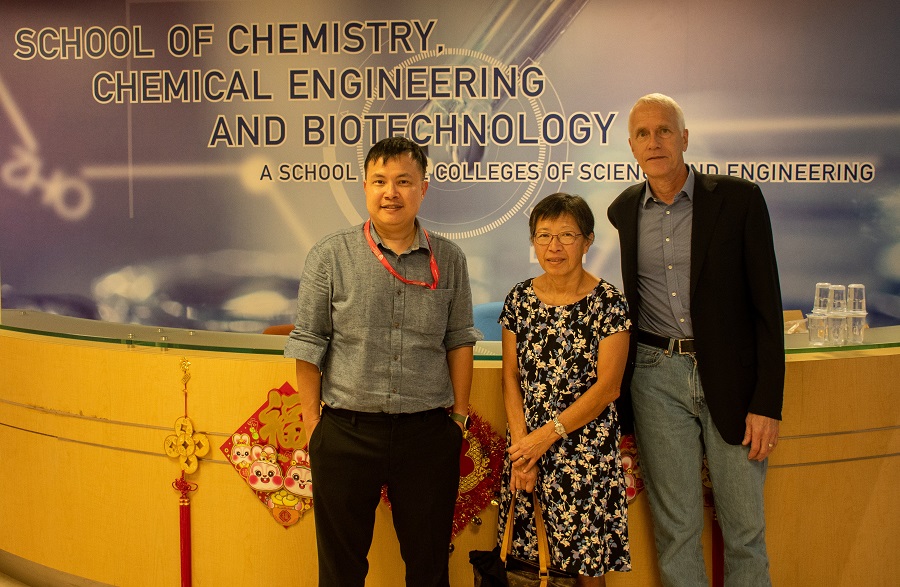
[From left] Assoc Prof Tan Meng How (Assoc Chair, Students & Continuing Education, CCEB), Dr Tong Sun Kobilka and Prof Brian Kobilka.
Written by Kim Sung Yeon | CN Yang Scholar
Photos by Clarissa Joanna Lim | CN Yang Scholar

